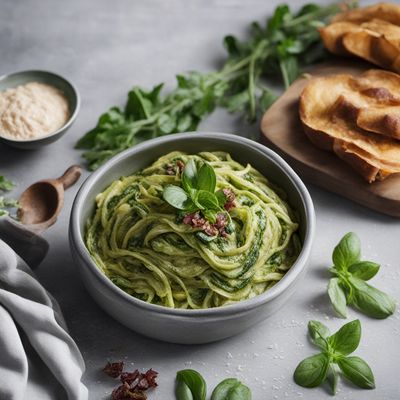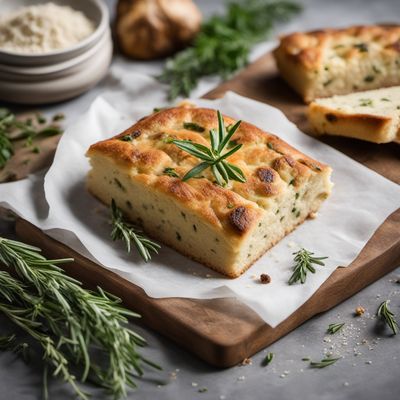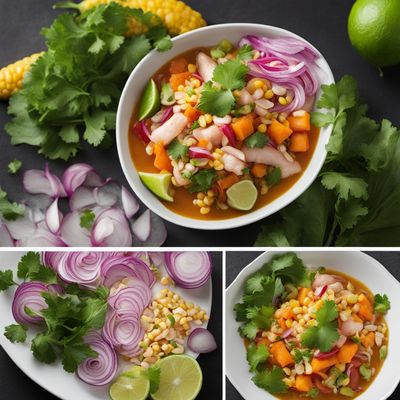
Ingredient
Marjoram fruit
The Fragrant Gem: Marjoram Fruit
Marjoram fruit refers to the small, oval-shaped seeds of the marjoram plant. These seeds have a subtle, sweet, and slightly citrusy flavor with hints of pine. They are often used as a spice or seasoning in various cuisines, adding depth and fragrance to dishes. Marjoram fruit has a light brown color and a crunchy texture when crushed.
Origins and history
Marjoram, a member of the mint family, has a rich history dating back to ancient Egypt and Greece. It was highly regarded for its medicinal properties and was used in culinary preparations as well. Marjoram fruit has been a popular spice in Mediterranean, Middle Eastern, and North African cuisines for centuries. It is often associated with Italian and Greek dishes, where it adds a distinct aroma and flavor.
Nutritional information
Marjoram fruit is a good source of antioxidants and essential minerals such as iron, calcium, and magnesium. It is also known for its potential anti-inflammatory and digestive properties.
Allergens
May cause allergic reactions in individuals with allergies to other herbs in the mint family, such as basil or oregano.
How to select
When selecting marjoram fruit, look for whole seeds that are dry, firm, and free from moisture or mold. The seeds should have a strong, aromatic fragrance. Avoid any signs of discoloration or rancidity. Opt for organic or locally sourced marjoram fruit whenever possible to ensure the best quality.
Storage recommendations
To preserve the freshness and flavor of marjoram fruit, store it in an airtight container in a cool, dark place, away from direct sunlight. Properly stored marjoram fruit can retain its quality for up to a year.
How to produce
Marjoram is a perennial herb that can be grown in a garden or in pots. It thrives in well-drained soil and requires full sun exposure. Sow the seeds directly in the soil or start them indoors and transplant them once they have developed a few sets of leaves. Regular watering and occasional pruning will help maintain the plant's health and productivity.
Preparation tips
Marjoram fruit can be used in both whole and ground form. Crush the seeds using a mortar and pestle or a spice grinder to release their aroma and flavor. They can be added to marinades, dressings, soups, stews, roasted vegetables, and meat dishes. Marjoram fruit pairs well with other herbs like thyme, rosemary, and basil. It is also a delightful addition to baked goods, such as bread, cookies, and fruit desserts.
Substitutions
Thyme seeds, oregano seeds, or basil seeds can be used as substitutes for marjoram fruit. However, keep in mind that each of these herbs has its own distinct flavor profile, so the substitution may alter the overall taste of the dish.
Culinary uses
Marjoram fruit is commonly used in Italian, Greek, Mediterranean, Middle Eastern, and North African cuisines. It is often added to tomato-based sauces, roasted meats, grilled vegetables, and herb-infused oils. Marjoram fruit is also a popular ingredient in spice blends, such as za'atar and herbes de Provence.
Availability
Marjoram fruit is commonly available in Mediterranean countries, such as Italy, Greece, Turkey, and Morocco. It can also be found in specialty spice shops or online retailers that offer a wide range of culinary ingredients.
More ingredients from this category
Recipes using Marjoram fruit » Browse all

Baltic-Style Sisig
Smoky Pork Delight: Baltic-Style Sisig

Homemade Wiejska Sausage
Rustic Delight: Homemade Wiejska Sausage Recipe

Baden-style Slavink
Savory Baden Bacon Rolls

Estonian-style Blood Sausage (Verivorst)
Hearty Estonian Blood Sausage: A Savory Delight

Roasted Jordanian Goose with Marjoram
Savor the Flavors of Jordan with Roasted Goose and Marjoram

Burgenländischer Krautstrudel
Savory Austrian Cabbage Strudel

Silesian Salviata
Silesian Spinach and Potato Dumplings

Silesian Beef Stew
Hearty Silesian Beef Stew: A Taste of Tradition

Slovak-style Focaccia with Herbs and Cheese
Savory Slovak Focaccia: A Delightful Twist on a Classic Italian Bread

Homemade Krvavice Sausage
Savory Delight: Homemade Krvavice Sausage Recipe

Peruvian Sierra Ceviche
Andean Delight: Peruvian Sierra Ceviche

Café de Paris Sauce Recipe
Savory Delight: Café de Paris Sauce
